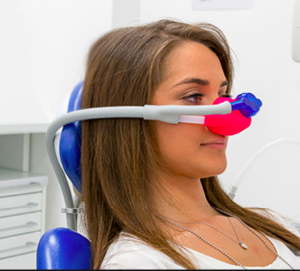Dentist anxiety spares no one, according to the latest data in the scientific literature affects about 20% of dental patients and about 40% of pediatric dentistry patients.
How does dentist anxiety affect dental health?
 Those who are afraid of the dentist manifest anxious behaviors that lead to greater neglect of the oral cavity. Usually, those who have a dentist’s anxiety limit themselves to their daily oral hygiene and lack the courage to even book a dental examination.
Those who are afraid of the dentist manifest anxious behaviors that lead to greater neglect of the oral cavity. Usually, those who have a dentist’s anxiety limit themselves to their daily oral hygiene and lack the courage to even book a dental examination.
When dental treatment is inevitable, methods must be used conscious sedation or even to the administration of anxiolytic drugs, solutions that imply consequences for the patient: conscious sedation represents an increase in the costs of wave therapy; the use of drugs, associated clinical risks.
Manage dentist anxiety with music
Patient management and the importance of the human component has become a prominent issue in the field of dentistry. In addition to the significant reduction in pain, thanks to new skills and technological equipment, there is an increasing attention to patient comfort. Welcoming waiting rooms, spaces for post-operative care, aromatherapy and relaxing music spread throughout all the rooms are some small precautions that bring dentistry closer to the patient.
Research on Oral Disease has focused on the benefit of music and its ability to reduce dental anxiety.
The assumption of the study is that listening to music during dental treatments reduces dental anxiety.
The considerations that emerged from music research and anxiety management
 What has emerged from the research and on which the scientific literature in this field is currently focusing is that music has the function of passive distraction in anxious patients.
What has emerged from the research and on which the scientific literature in this field is currently focusing is that music has the function of passive distraction in anxious patients.
According to the data that emerged, for greater effectiveness on dentist anxiety it is important that music is already distributed in the waiting room.
With regard to the possibility for the patient to listen to music on headphones there is a contraindication. The music could cover “dental sounds” and even the dentist’s voice, this could generate in the patient the feeling of not controlling events, increasing anxiety.
Indeed, communication between the dentist and the patient remains a fundamental step in managing dental anxiety. The dentist, explaining all the phases of the treatment step by step, reassures the patient and allows him to keep control of the situation.
The research also highlighted the correlations between individual factors and the effectiveness of music therapy in dentistry, the incidence of music on anxiety would in fact also depend on:
- patient’s age;
- cognitive function;
- familiar with musical language;
- personal experience in relation to music.
Music fights dental anxiety
Making the music heard during dental treatments therefore positively affects the patient’s mood and serenity. A step forward for a dentistry closer to everyone’s needs.















